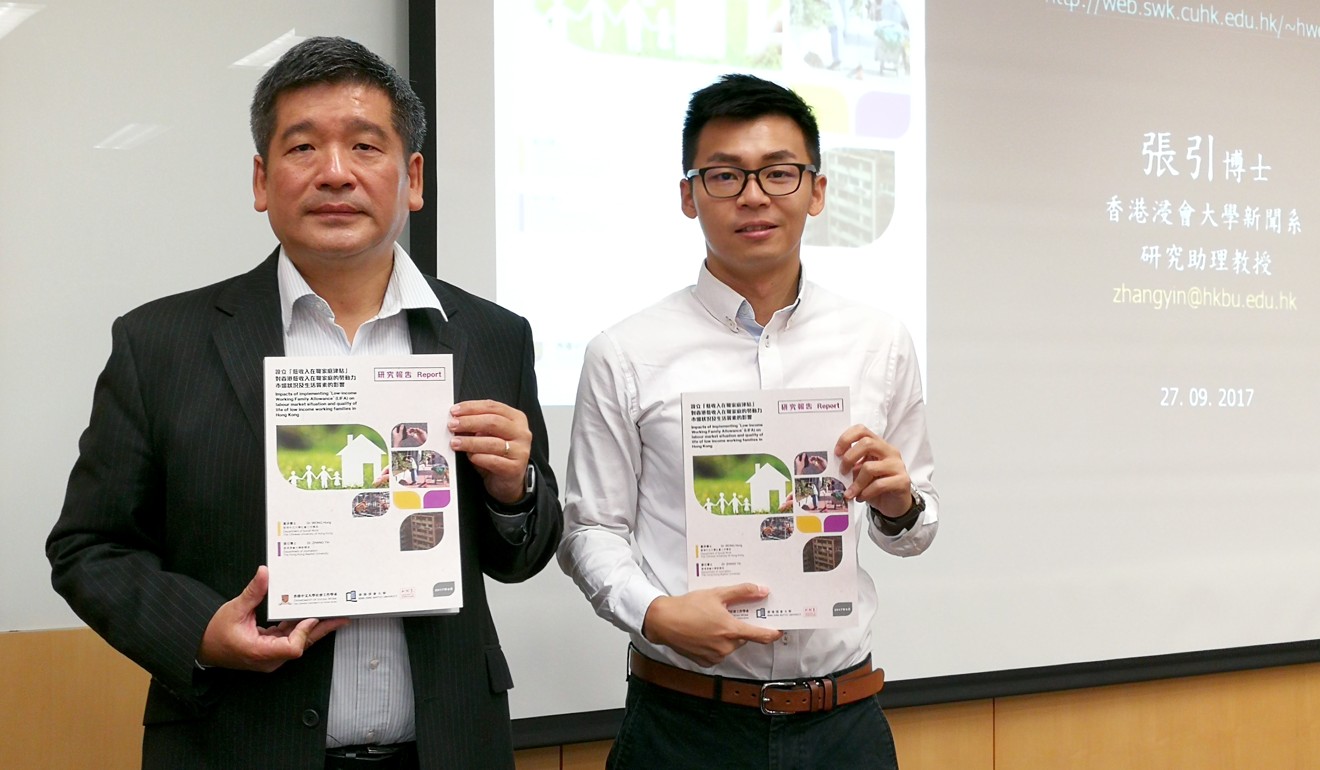
Low-income Hong Kong workers unhappier after joining government allowance scheme
Study shows recipients have to work long hours but be careful to keep household income below limit to qualify for aid
Despite having more spending money, low-income working families getting a government allowance were found to be less happy than before, according to a year-long study on 1,900 individuals from households earning less than HK$24,000 a month.
“A tram driver told me that he had to carefully calculate the overtime hours he could work every month,” said Chinese University associate professor of social work Wong Hung, who led the study from last August to last month.
The long working hours left breadwinners exhausted and with little time left to spend with their loved ones, Wong added.
When asked to rate their happiness on a scale from zero to 10, a smaller group of 190 individual recipients gave an average score of 6.13 before the policy was implemented and 5.64 after they started to receive the allowance.

Scholars commissioned by the Central Policy Unit to conduct the research advised the government to streamline allowance applications across the board by lowering the threshold for working hours and raising the upper limit on household income.
So far, about 119,000 individuals have been granted some HK$640 million under the allowance scheme as of June – a year after the scheme was rolled out last May – far behind the government’s target to support 700,000 people.
Wong said the policy was caught in an “embarrassing reality” where the recipients were forced to work long hours at low-income jobs, and their satisfaction had not increased accordingly although they could afford better food, education and medical care with the allowance.
Under the scheme, applicants have to ensure that their working hours are long enough while their salary is still within the income limit specified, which is set as half the monthly median income of Hong Kong families.
Working poor have to jump through hoops to get allowance, Hong Kong survey finds
In a two-person household for example, the main breadwinner must work at least 144 hours a month to qualify for a full-rate basic allowance of HK$600, and more than 192 hours for a higher allowance of HK$1,000. Meanwhile the pair must keep the household income below HK$9,500.
Wong suggested that a family in which all employed members worked more than 144 hours in total should be eligible for the higher allowance of HK$1,000. Meanwhile, the household income limit should be raised and pegged to the median income of working families instead of general households.
“The government should make clear that the goal is to increase family income instead of working hours,” Wong said. He estimated that the number of families benefitting from the allowance would double if his recommendations were taken up.
The Labour and Welfare Bureau said it had conducted a comprehensive review of the allowance scheme, including its effectiveness in poverty alleviation and work incentive. The bureau aims to come up with a proposal for improvement before the end of 2017.

